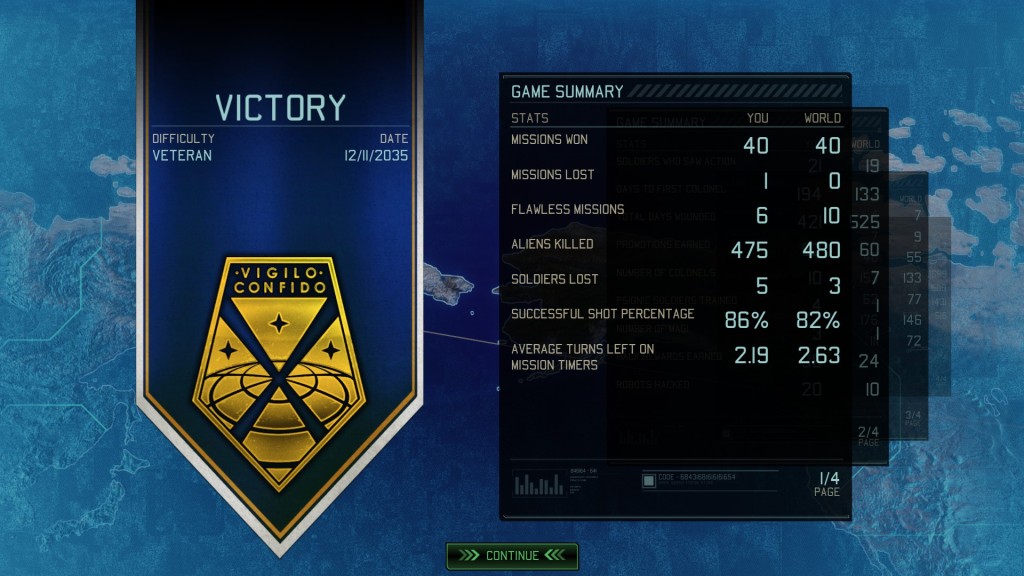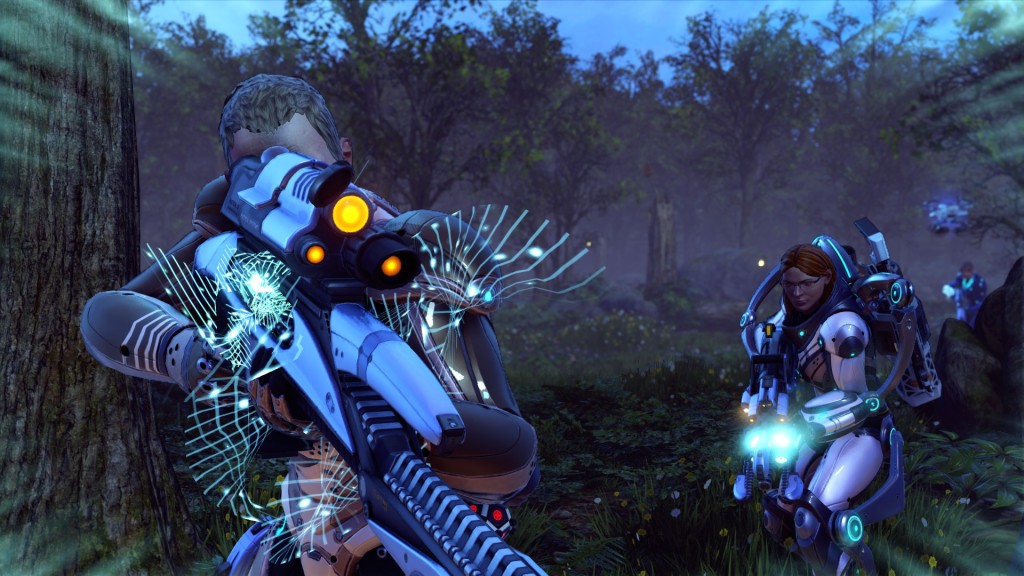This week’s theme is taken from Emperor of the Fading Suns, a cult-classic 1990s TBS that I’ve previously raved about. EFS was – and still is – the defining video game implementation of “feudal future” science fiction, with a soundtrack to match. I’m kicking around ideas for a Let’s Play; until then, enjoy!
Month: March 2016
Thoughts on XCOM 2
 Worthy successor. XCOM 2 is game of the year material for me, building on what worked in XCOM: Enemy Unknown and Enemy Within. I look forward to what Jake Solomon and team do next!
Worthy successor. XCOM 2 is game of the year material for me, building on what worked in XCOM: Enemy Unknown and Enemy Within. I look forward to what Jake Solomon and team do next!
More detailed thoughts below:
– This is how to balance a single-player game — “give the player interesting decisions” means “give the player an impressive choice of tools” 1 The punishing early game teaches several lessons: Protracted shootouts are dangerous. Guaranteed damage is better than relying on the odds. Stack the odds wherever possible. By the mid-game, we’ve unlocked enough abilities to put those lessons into practice. Every XCOM 2 class can do something cool: rangers can stealthily scout, sharpshooters can engage multiple targets on overwatch, grenadiers can choose between high single-target damage or area-wide de-buffs & damage over time, specialists can heal from a distance or inflict guaranteed damage, and psionics can do most of the above. (While XCOM: Enemy Unknown and Enemy Within also had plenty of impressive tools — snipers in Archangel armour, run-and-gun plus rapid fire, using Mimetic Skin to sneak heavies in range for an explosive barrage — I feel XCOM 2 does a better job of making every class feel powerful, with psionics the big winner.) Balance is driven by limitations on what the player can deploy, not by making the player feel weak.
– Successful fusion of strategy and RPG. At a tactical level, the Firaxis XCOM games revolve around choosing one’s favourite tools (equipment and especially character abilities), understanding how they interact, and applying that knowledge to solve individual problems — a description that could also apply to a well-designed party RPG. In turn, those problems involve multiple dimensions, such as the number and type of enemies, terrain, positioning, the mission timer, and the resources already expended (health and consumables, plus any abilities on cooldown) — factors usually associated with the strategy genre. That interplay gives these games their richness.
– Music the biggest let-down. I like XCOM 2’s visuals — the architecture of the new human/alien civilisation is surprisingly lovely, masking the iron fist beneath. The ADVENT soldiers’ big, imperious arm gestures cement them as pulp baddies. XCOM operatives’ animations are as satisfying as ever, from shimmying down drainpipes to whipping out pistols, and late-game equipment looks fantastic. Set against this, the music is merely decent — a big step down from the great soundtrack of XCOM: Enemy Unknown.
- Contrast Civilization: Beyond Earth, which gave the player underwhelming choices instead. ↩
Clippings: From Tristram to the Stars
Paradox has announced the imminent release of its next two grand strategy games — Stellaris (9 May) and Hearts of Iron IV (6 June). The gameplay video above highlights the start of a Stellaris game – it looks promising! The key will be the extent to which Stellaris can combine the best of the 4X (discovery, exploration) and grand strategy (dynamic empires) genres, while avoiding the usual late-game pitfalls, snowballing and micromanagement. This is one reason I’m so interested in the game’s AI sector governors – if implemented well, they hold out the promise of a transition to late-game “macromanagement” a la Nobunaga’s Ambition.
In other news:
- Here is an interesting look back at the making of Diablo, 20 years ago. Did you know that its isometric appearance drew inspiration from X-COM?
- And here is a short reflection about the power that player characters have over NPCs. It makes a good companion to this May 2015 piece about the worldbuilding in The Witcher 3, which, the author argues, derives much of its effectiveness from the way NPCs respond to Geralt. I still need to play that game…
- Finally, here is an interesting glimpse inside the under-reported Chinese gaming industry.
Musical Monday: Behind the Scenes with Shogun 2
Celebrating the fifth birthday of Total War: Shogun 2, this week’s Musical Monday is slightly different – a behind-the-scenes look at its taiko drum music. I was interested to learn it was recorded in Sydney by a local troupe, Taikoz. Enjoy!
Clippings: En Route to No Man’s Sky
Short update this week – No Man’s Sky now has a release date, 21 June, and a flurry of previews have gone up. I like the preview/interview pairs from USGamer and PC Gamer; for a more personal look at NMS‘ creators — and their process of creation — check out this May 2015 article from the New Yorker.
Meanwhile, the Master of Orion reboot is now available on Steam Early Access. Previews appear scarce, and PCGamesN is downright unenthused.
Finally, Sherlock Holmes: The Devil’s Daughter now has a confirmed release date, 27 May (hat tip to frogbeastegg).
